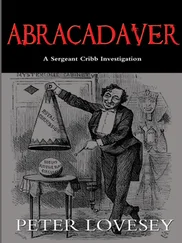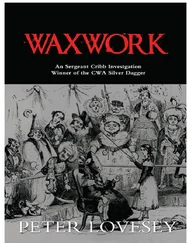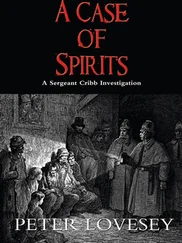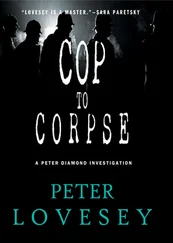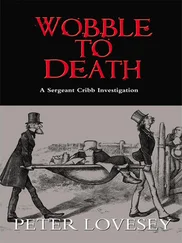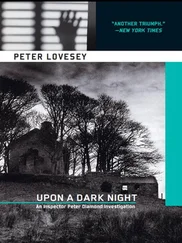Peter Lovesey - Rough Cider
Здесь есть возможность читать онлайн «Peter Lovesey - Rough Cider» весь текст электронной книги совершенно бесплатно (целиком полную версию без сокращений). В некоторых случаях можно слушать аудио, скачать через торрент в формате fb2 и присутствует краткое содержание. Жанр: Криминальный детектив, на английском языке. Описание произведения, (предисловие) а так же отзывы посетителей доступны на портале библиотеки ЛибКат.
- Название:Rough Cider
- Автор:
- Жанр:
- Год:неизвестен
- ISBN:нет данных
- Рейтинг книги:4 / 5. Голосов: 1
-
Избранное:Добавить в избранное
- Отзывы:
-
Ваша оценка:
- 80
- 1
- 2
- 3
- 4
- 5
Rough Cider: краткое содержание, описание и аннотация
Предлагаем к чтению аннотацию, описание, краткое содержание или предисловие (зависит от того, что написал сам автор книги «Rough Cider»). Если вы не нашли необходимую информацию о книге — напишите в комментариях, мы постараемся отыскать её.
Rough Cider — читать онлайн бесплатно полную книгу (весь текст) целиком
Ниже представлен текст книги, разбитый по страницам. Система сохранения места последней прочитанной страницы, позволяет с удобством читать онлайн бесплатно книгу «Rough Cider», без необходимости каждый раз заново искать на чём Вы остановились. Поставьте закладку, и сможете в любой момент перейти на страницу, на которой закончили чтение.
Интервал:
Закладка:
It put me on the spot. I’d been brought up to tell the truth. Most times, anyway. Kids were fair game but not grownups. Lying to grown-ups was out. Yet I felt a pull of loyalty. Barbara was a grown-up, too, and I liked her best of all the Lockwoods. I didn’t want to break a confidence. So I refused to answer.
To no effect. Mrs. Lockwood learned exactly what she wanted to know from my silence. And when I refused to confirm it, she bent me over the mangle and larruped my backside with a slipper for dumb insolence. She was a resolute woman.
It was the only time anyone struck me during my stay in Somerset. I’m not going to make the obvious comment that I was more surprised than hurt, because the truth is that I was surprised and hurt. That slipper really stung. Until that time I’d equated Mrs. Lockwood’s temper with her voice. She’d tolerated me in her kitchen, fed me well, washed my clothes, and sent me to school on time. She hadn’t given me affection, which Barbara supplied, but neither had she been hostile. Looking back, she was obviously under strain. She resented being stuck with an evacuee and felt worried over Barbara, and it all came out as she wielded the slipper.
I’m grasping for a memory now. It’s elusive, and I can’t be certain whether some of it was wish fulfillment after my punishment. That same night I’m lying facedown in bed and the pillow is damp. I’m practically asleep when I feel the soft movement of hair against my neck.
It’s Barbara.
I keep still, not wanting her to know I’ve been crying. Her face rests lightly against mine and remains there for some seconds. Then she kisses my cheek. The touch of her lips stirs me in a way quite new to me. She strokes my forehead, whispering that she’s come to thank me for what I went through for her. She says I’m her little champion. She knows how much it hurt because she and her brother, Bernard, used to get it the same way when there was trouble, over the mangle, with the slipper, just like me. But they always deserved it and I didn’t, and she feels ashamed of what her mother did. She promises me it won’t happen again-not because of her, anyway. Before she goes, she kisses me a second time. That’s all I’ve retained. I don’t think I made it up. I can hear her clearly saying, “My little champion.” Don’t mock it. We were all children once.
In November the cider pressing got under way. The first frosts had nipped the applies lying heaped in the orchard, and we loaded them into trailers to be moved to the cider house. When I say we, I mean Mr. Lockwood, Bernard, and three farmhands, assisted between times by me and the GIs, who were eager to see the process. That’s what they said, anyway. If they’d come to see the girls, they were in for a disappointment, for this was men’s work.
Boys’ work too. I was honored with a special duty. The old stone cider house was equipped with a loft, and the apples were brought there to be hoisted up in sacks through a door set high in the wall that fronted on the yard. It was my task, working by lantern light in the apple loft, to load the fruit into the wooden feed box of the mill beneath. I was given a wooden shovel, and when the mill was running and the word came up from Mr. Lockwood, I’d start an avalanche through the square opening in the floor, down through the funnel of sacking to the hissing, spitting cider mill. Tremendous. In the intervals I made a slide over the juicy, black mess on the floor.
Below me, the apples were converted into pomace, first by toothed iron rollers that broke them up, then stone rollers to crush them. Now Mr. Lockwood simply fitted up his all-purpose petrol engine. The pomace was collected in a wooden trough at the bottom of the mill and shoveled out with wooden spades. At this stage in the process, nothing of metal was allowed to come into contact with the fruit.
Beside the mill was a massive wooden press. On it, alternate layers of wheat straw and pomace were spread to build what Mr. Lockwood called a cheese. He stood beside it, shaping it to about four feet square, turning in the ends of the straw as each layer was completed. The final cheese was taller than I was, and they said it weighed a ton.
Then everyone gathered round for the pressing. Barbara and Mrs. Lockwood were called from the house. A tub was positioned under the press, the windlass was turned, and we all cheered as the thick brown juice gushed out.
The women hadn’t come, as I supposed, simply to watch. At this stage they joined in the work, transferring the juice with wooden dippers to casks where it had to ferment. What really surprised me later-and the GIs, I remember-was to see Mr. Lockwood drop a leg of mutton into each of the casks. “Best cider’s mutton-fed,” he told us, swiveling his bloodshot eyes. “They bones’ll be picked clean by Christmas.”
One Saturday morning in the cider house, when the Yanks were in and we were having our morning tea break, Bernard made trouble. I’m sure it was calculated. He was malicious, resentful of the amusing turn the conversation always took when Harry was on form. He suddenly said, “Cliff Morton’s been around again.”
Mr. Lockwood looked up sharply and asked “What do ‘ee mean, been around?”
Bernard answered cagily, “No more’n what I say, Father.” His eyes were fixed on Barbara, who went pale. He was a sadist. He easily could have taken his father to one side and spoken to him in confidence.
Mr. Lockwood said, “Around the farm or what?”
Still with his eyes on Barbara, Bernard answered, “Saw his bike when I were walking home last night, didn’t I? Stuffed in the ditch, far side of the north field.”
Mr. Lockwood spat copiously into the straw. “If that sod-din’ bastard-”
His wife cut in, and I thought she was taking exception to his language, but no. “Blimmin’ deserter too,” she said. “Got his call-up papers September, I was told. Should’ve reported last month.”
“Buggered if he’s holin’ up ‘ere,” Mr. Lockwood decided, on his feet. “Show me.”
Bernard followed him out, but I don’t think they found the bike, or its owner, because no more was said. Mr. Lock-wood was back in twenty minutes to supervise the clearing of the crushed cheese from the press, ready for the next load. I helped Barbara fill a, barrow with dry pomace for cattle feed. She wasn’t speaking to anyone.
By lunchtime tempers were less frayed. The first cheese had yielded 110 gallons, and the second was taking shape quickly with the extra help of the GIs. When Duke and Harry offered to give me a shooting lesson with the pistol, Mr. Lockwood told them amiably that there was no need to hurry back.
To my delight, Barbara said she’d like to join us. It was pretty obvious that she’d had a basinful of her family-her brother, anyway. Bernard had cynically and cruelly chosen the moment to tell his scare story about the odious Cliff Morton. It was calculated to embarrass and alarm Barbara in front of everyone. I think it had caused her more anger than distress. She was still subdued as we crossed the field to the edge of the copse where Duke had decided the lesson could safely take place.
We took turns shooting at an old petrol can. I learned how to load and take aim and hold the gun steady, needing both hands to control the recoil. By the end I was about equal with Barbara in hits, but neither of us would have been much use to the army.
On the walk back across the field Harry tried to liven things up by unfastening Barbara’s headscarf and passing it to Duke. Barbara grabbed for it and missed. She was in no mood for romping about the field. If you ask me, she was still upset by what had been said in the morning. Duke held the scarf high above his head, fluttering in the wind, so that she would have to get close to reach for it.
Читать дальшеИнтервал:
Закладка:
Похожие книги на «Rough Cider»
Представляем Вашему вниманию похожие книги на «Rough Cider» списком для выбора. Мы отобрали схожую по названию и смыслу литературу в надежде предоставить читателям больше вариантов отыскать новые, интересные, ещё непрочитанные произведения.
Обсуждение, отзывы о книге «Rough Cider» и просто собственные мнения читателей. Оставьте ваши комментарии, напишите, что Вы думаете о произведении, его смысле или главных героях. Укажите что конкретно понравилось, а что нет, и почему Вы так считаете.

